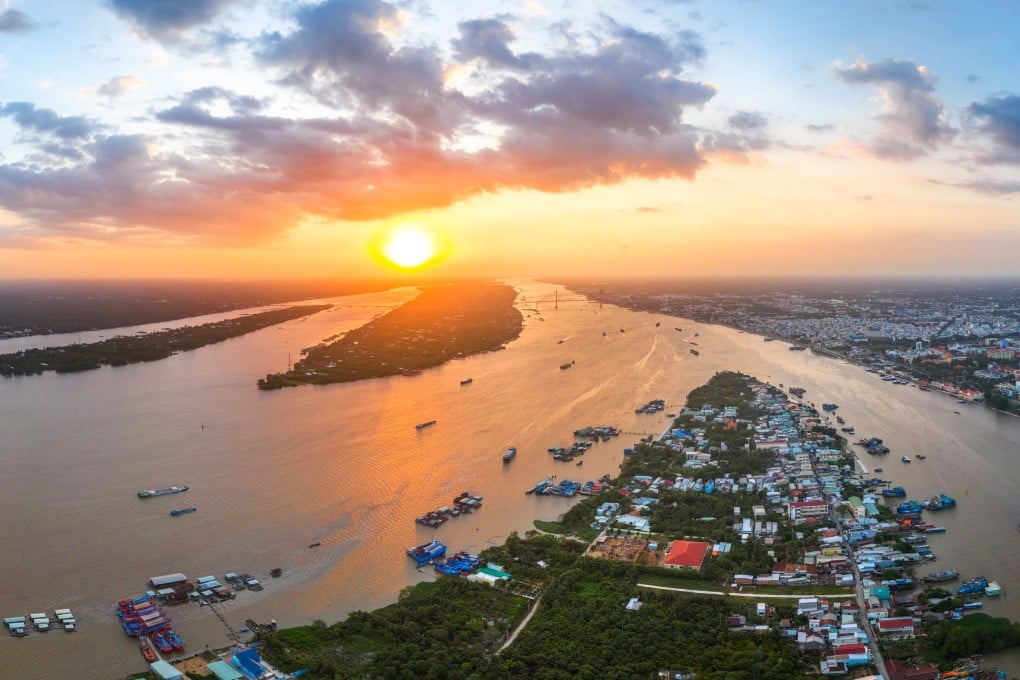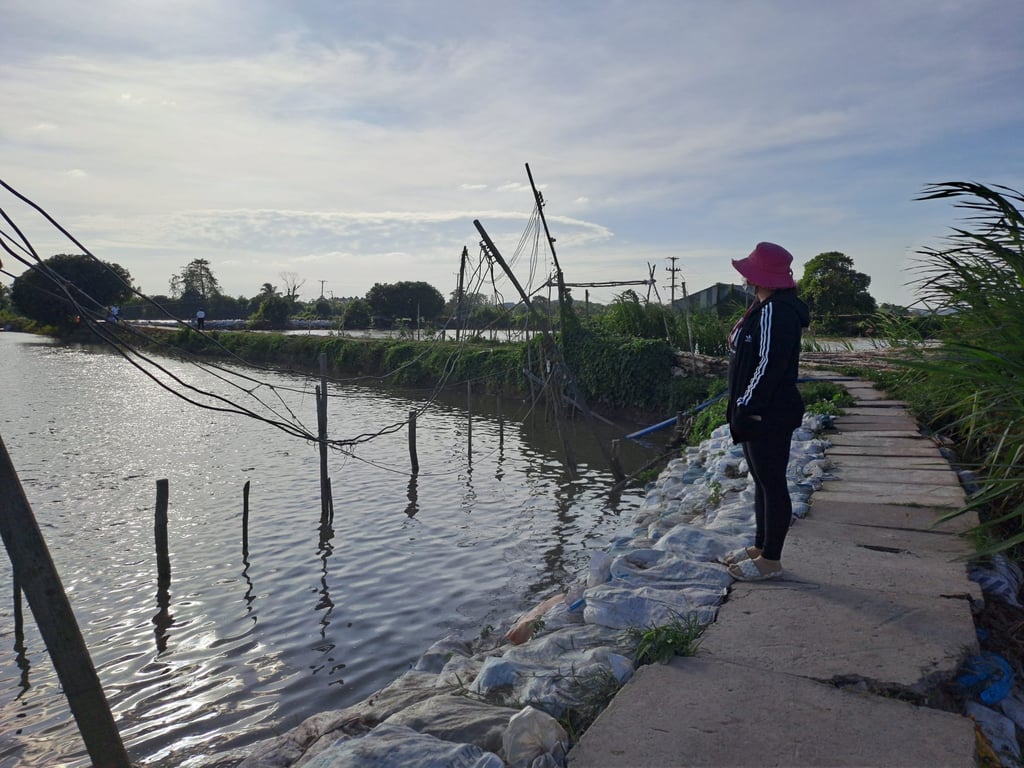Advertisement
In Vietnam, the mighty Mekong’s banks are crumbling as illegal sand miners run riot
- Sand mining is eating away at the Mekong Delta’s foundations, with a recent report finding it had done more to alter sediment flows than upstream dams
- The illegal practice has been linked to tragedies such as bridge collapses elsewhere. Advocates say a lack of oversight in Vietnam is partly to blame
Reading Time:4 minutes
Why you can trust SCMP
2

When the retaining wall of Vietnamese fish farmer Ho Thi Bich Tuyen’s catfish pond collapsed into the Hau River several years ago, she knew who was to blame: illegal sand miners.
“They took the sand, and the riverbed just kept going lower and lower,” she said. “There were so many of them. The sand miners came close to the riverbank. So I told the local ward officials to shoo them away, but at night they came back again.”
The damage caused 150 tonnes of Tuyen’s catfish to escape into the wider Mekong Delta that were worth several billion dong (hundred of thousands of US dollars).
“Because they took the sand, the erosion was so aggressive,” said the 40-year-old owner of a fish farm in Can Tho, the largest city in the delta region.

Sand mining is eating away at the foundations of the Mekong Delta, with a report last month from Vietnam’s Department of Climate Change and France’s government-run French Development Agency finding that the practice had done more to alter sediment flows in the river than even hydropower dams – many of which are in China and have been blamed for worsening droughts downstream. Many researchers have also warned about sediment being trapped upstream and in tributary dams.
Advertisement